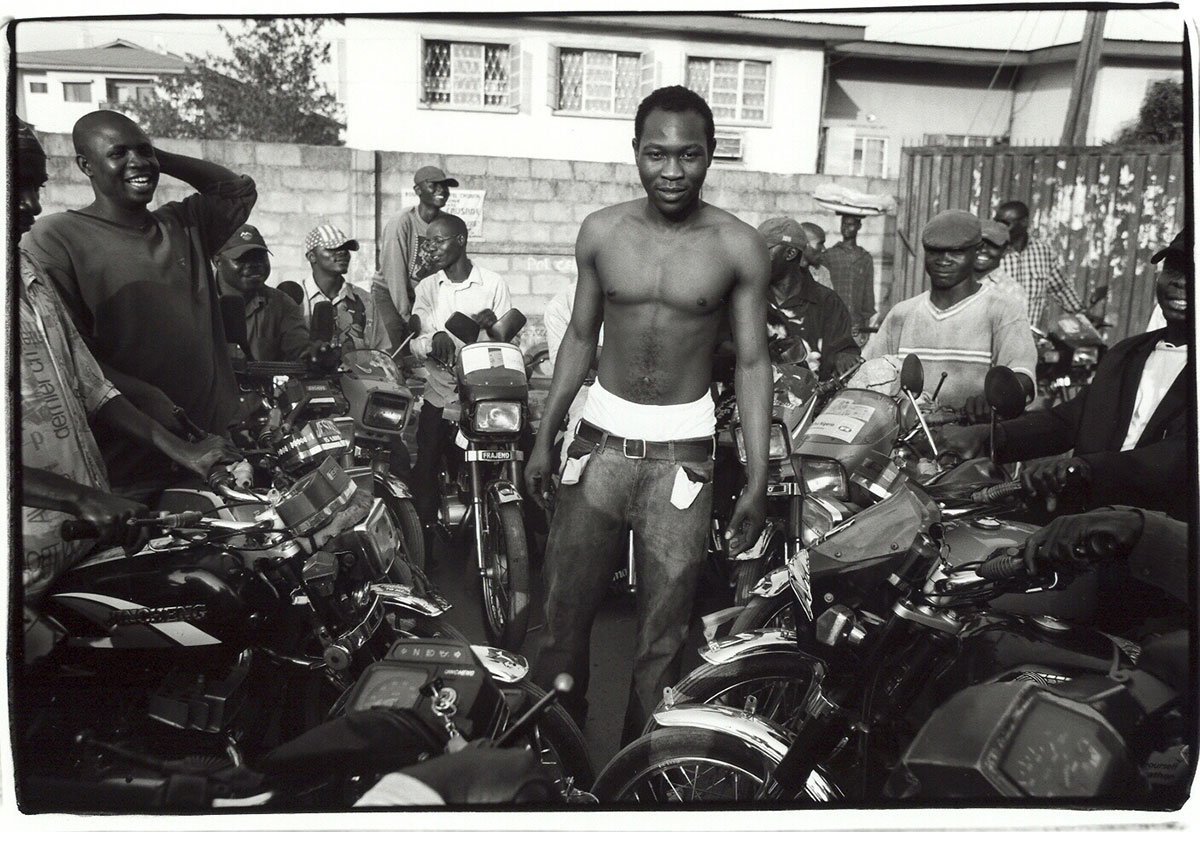
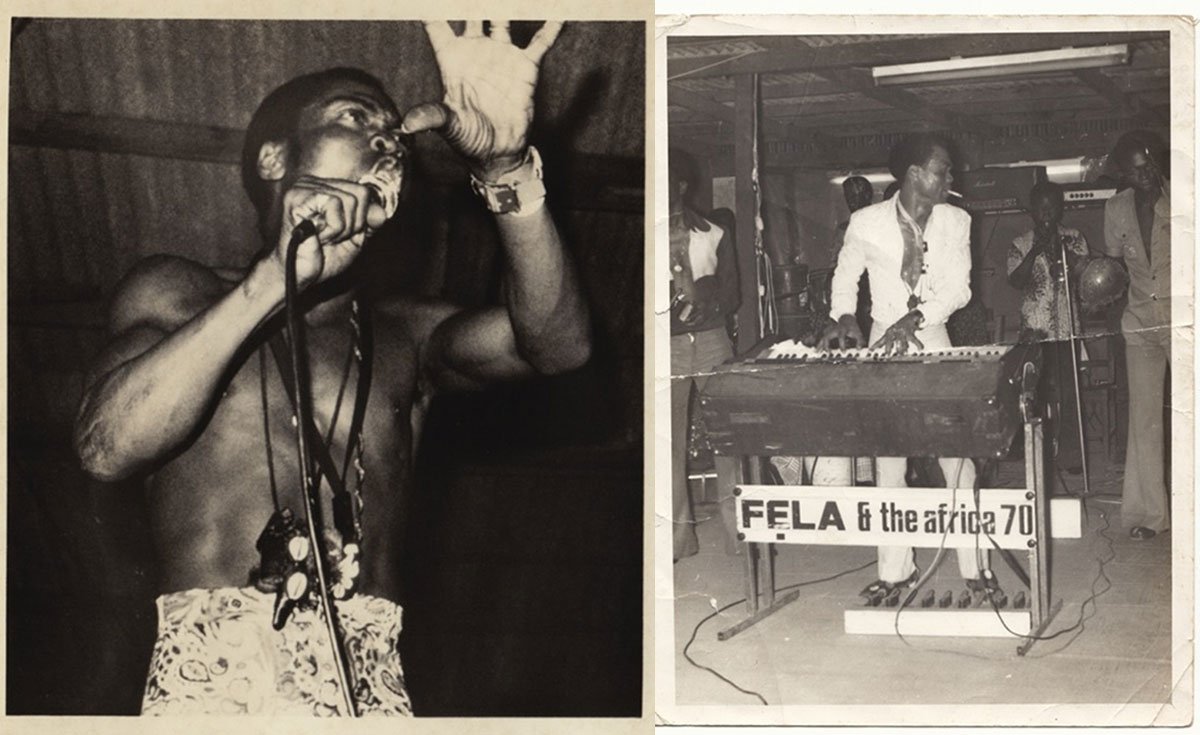 Φωτ. via Afrobeatdiaries.
Φωτ. via Afrobeatdiaries.
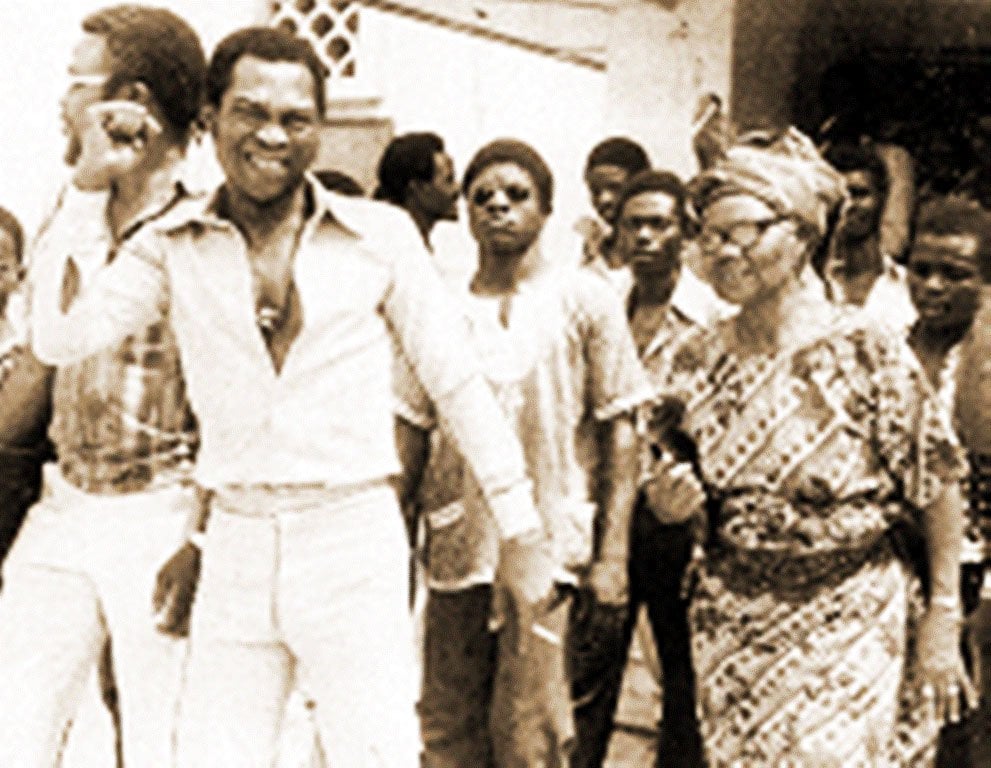
Music is the Weapon, pt1.
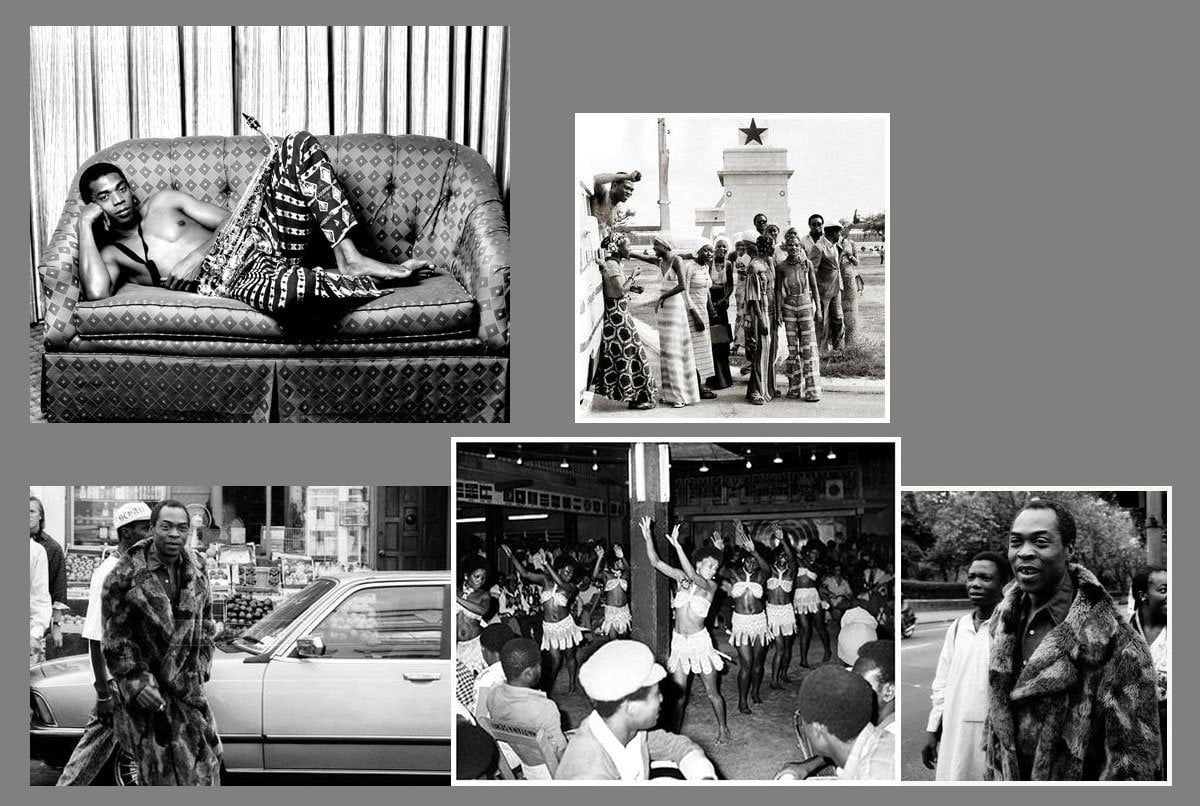
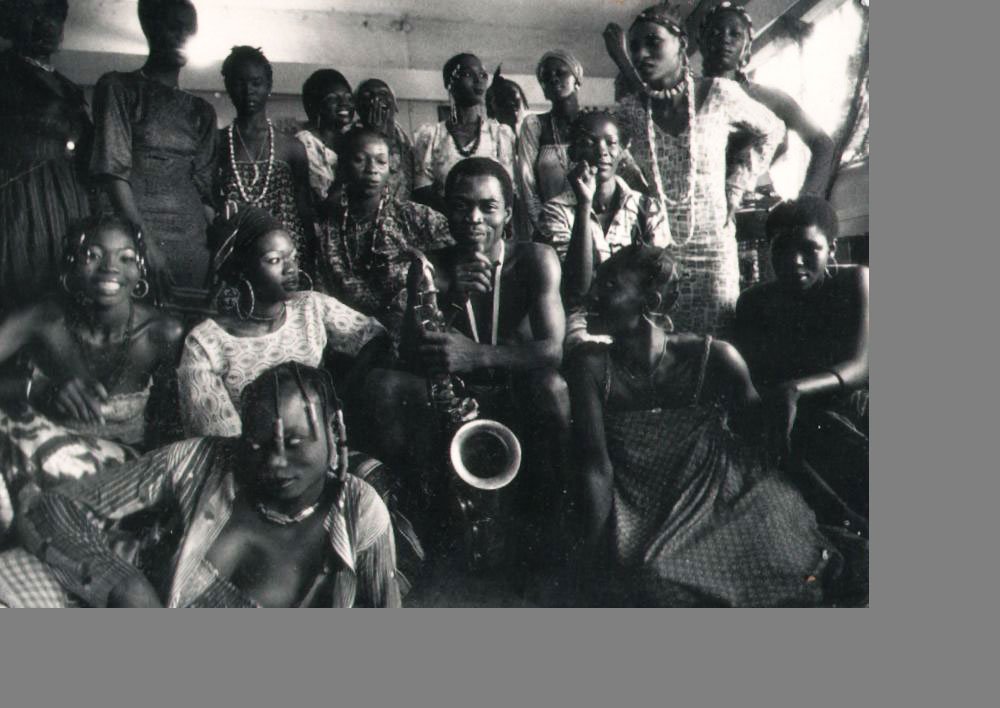
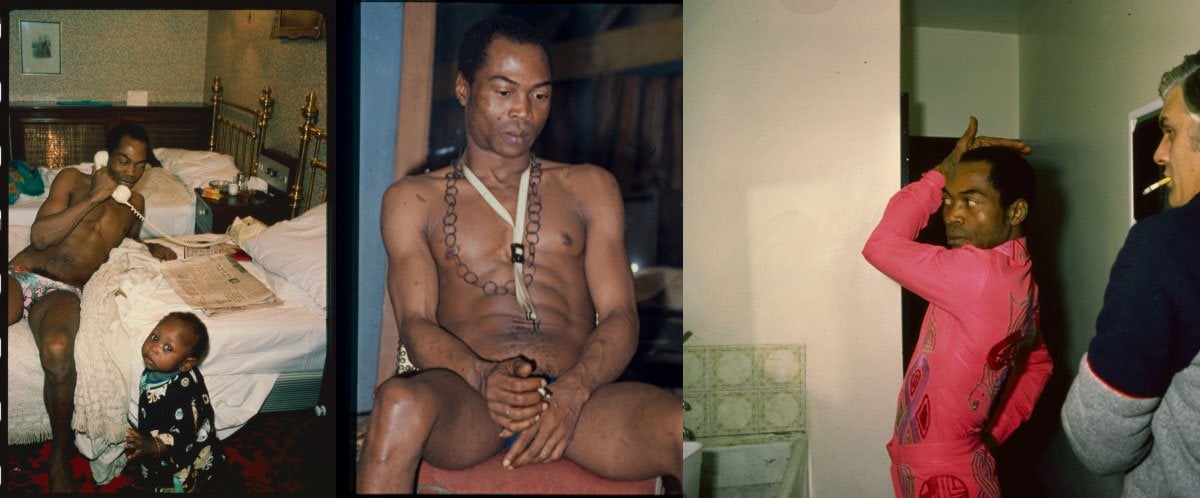
Φωτ. Bernard Matussiere.
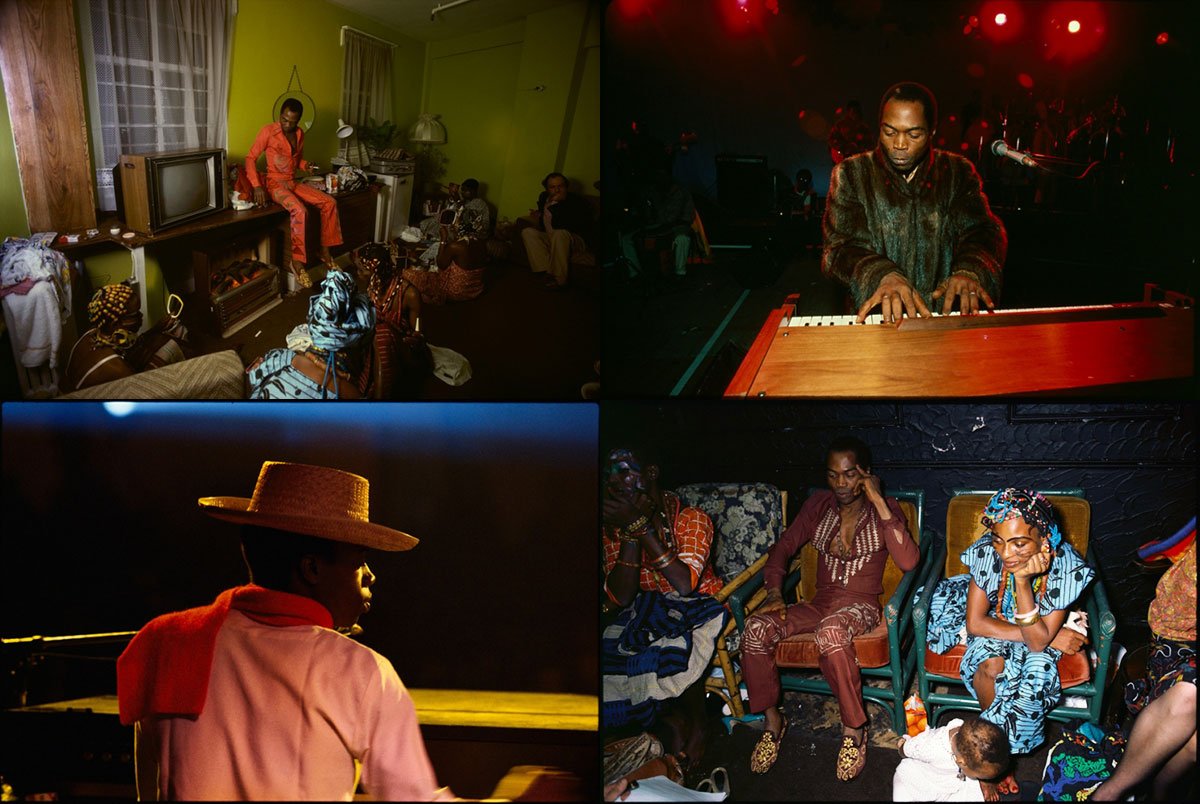
Φωτ. Bernard Matussiere.
Fela Kuti & Egypt 80. Live Performance στο Midsummer Concert - Glastonbury Festival 1984, pt1.
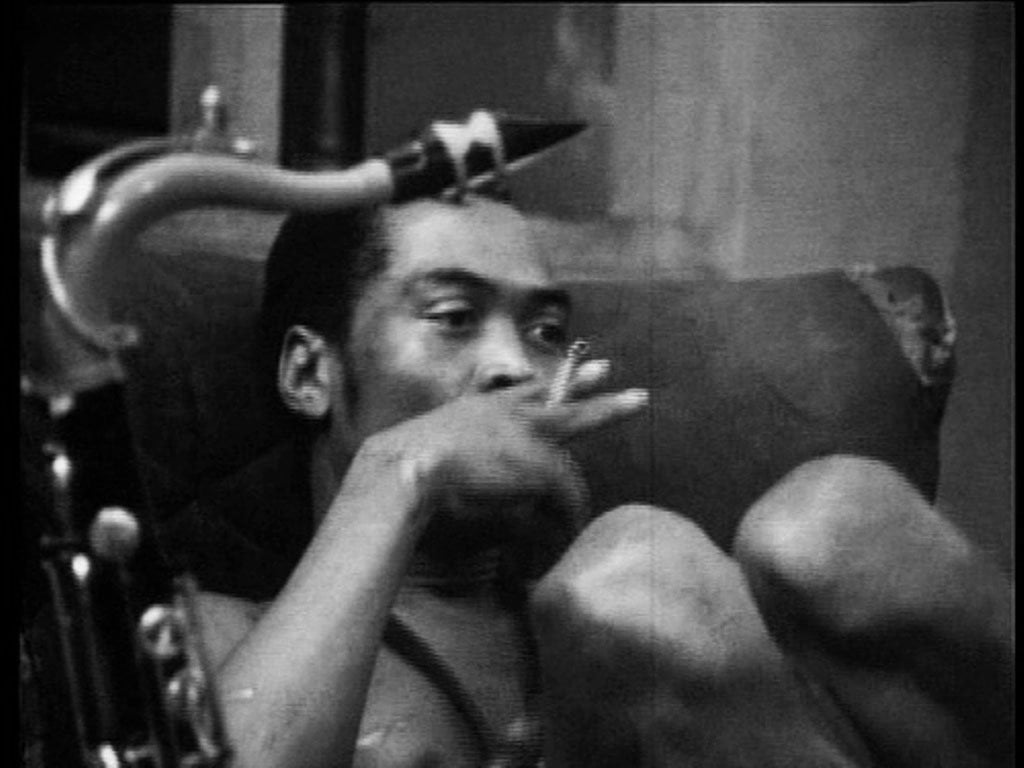
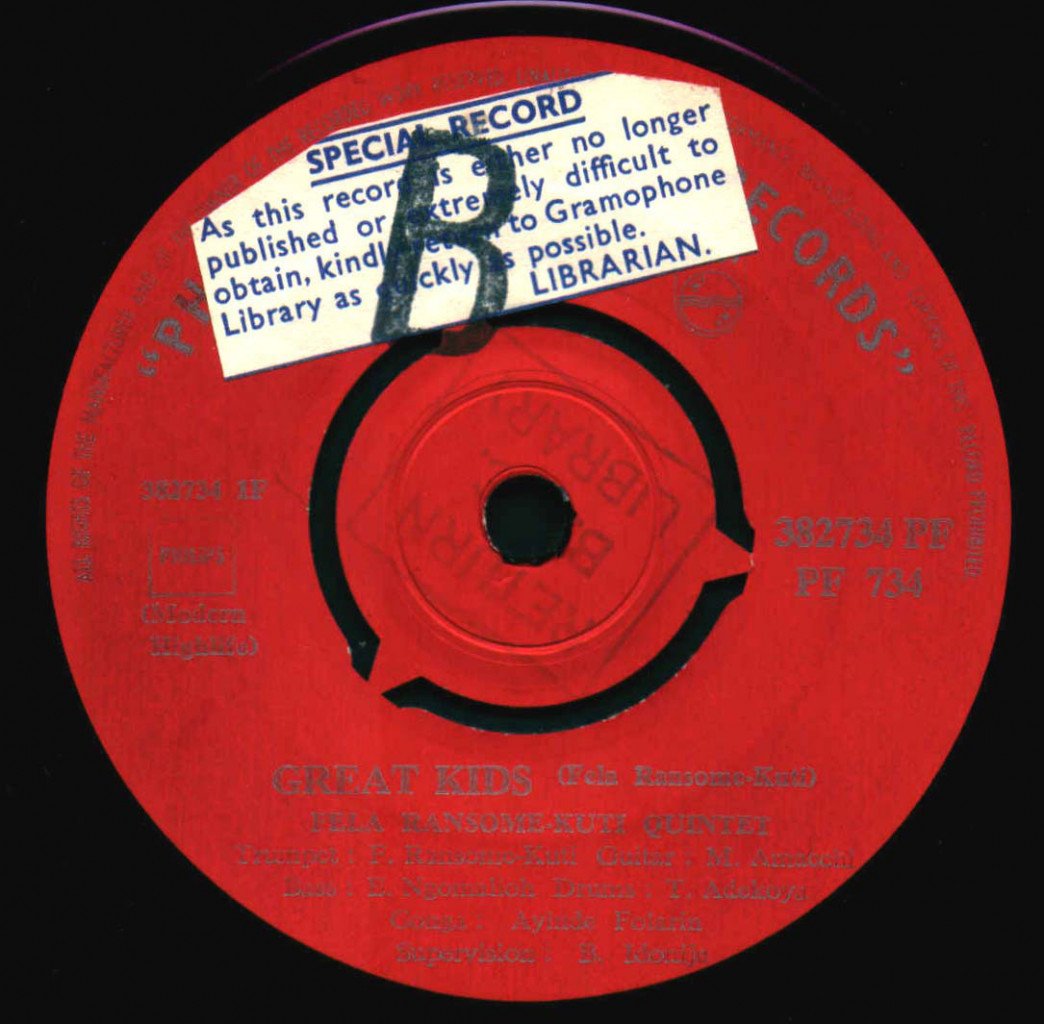
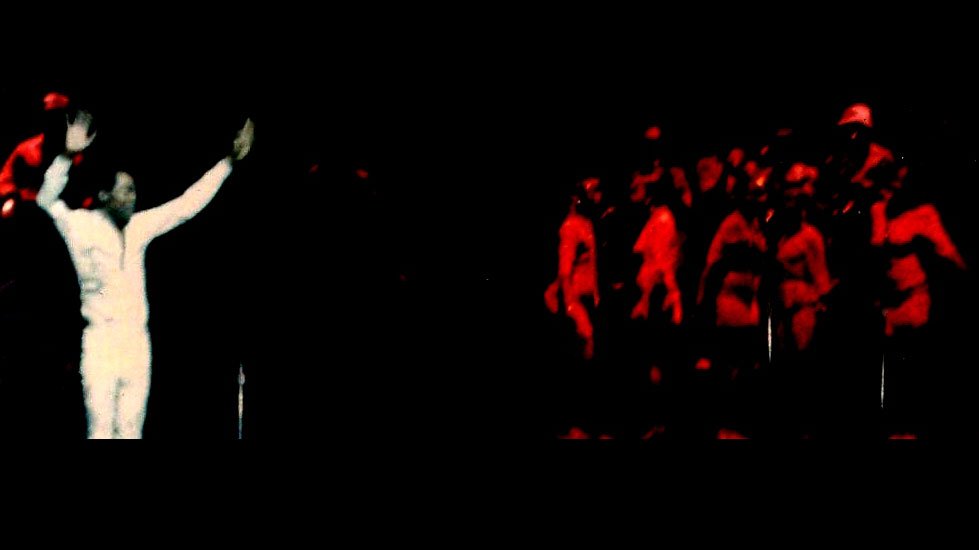
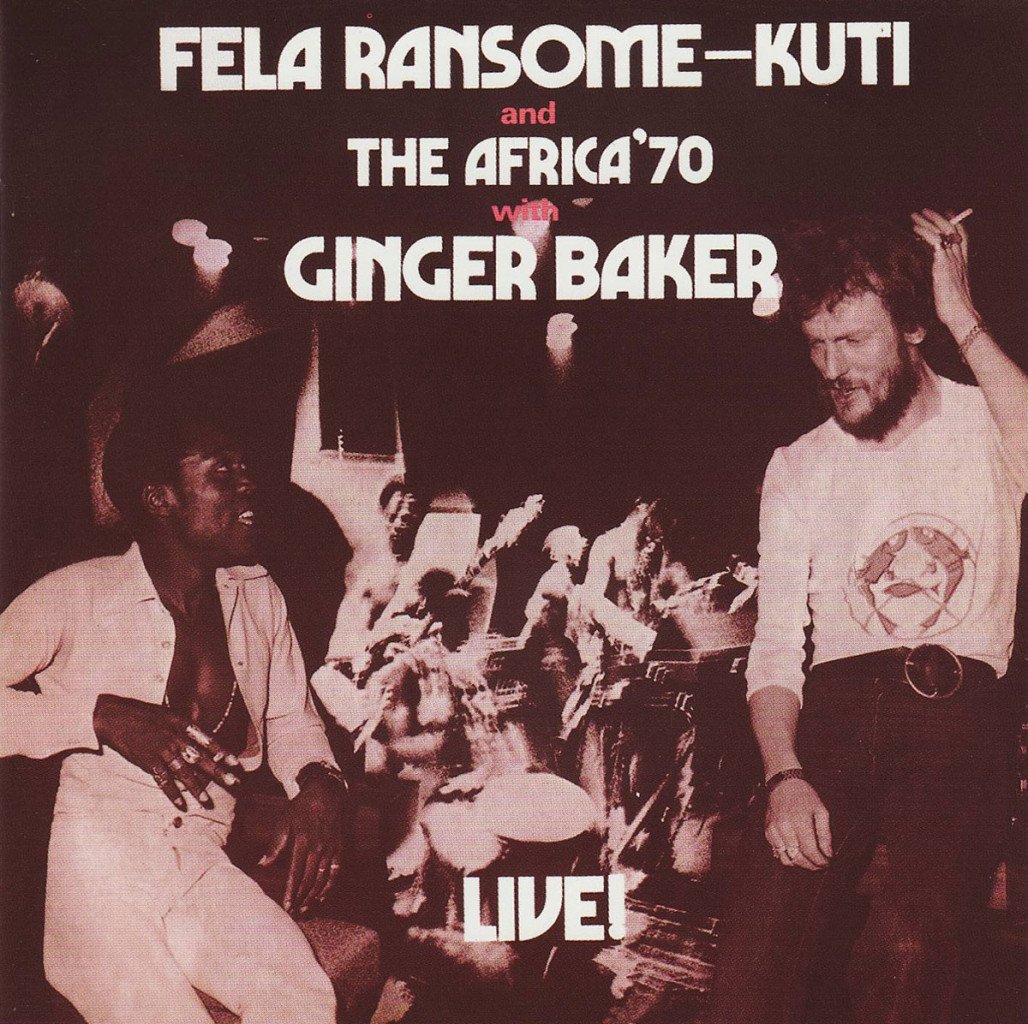
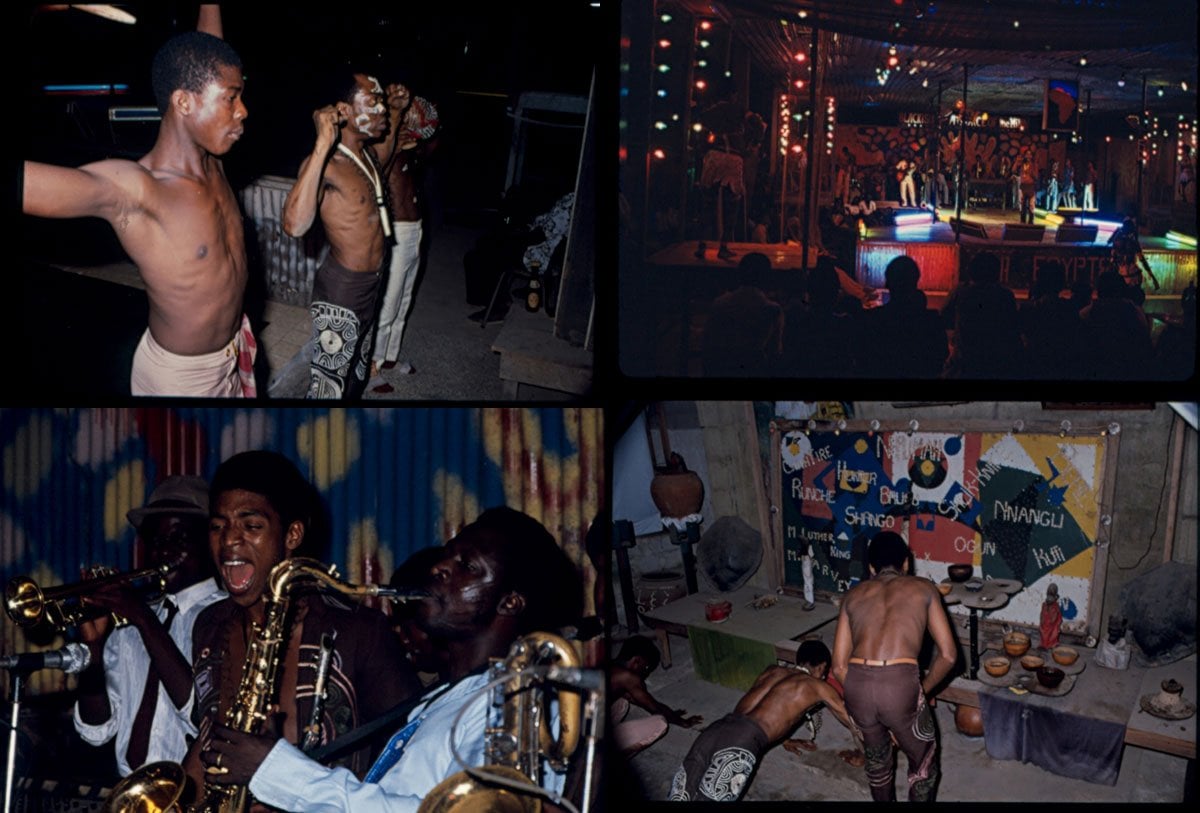
Φωτ. Howard Cash.
FELA. The legends of afrobeat. AFRIKA 70 (teaser).
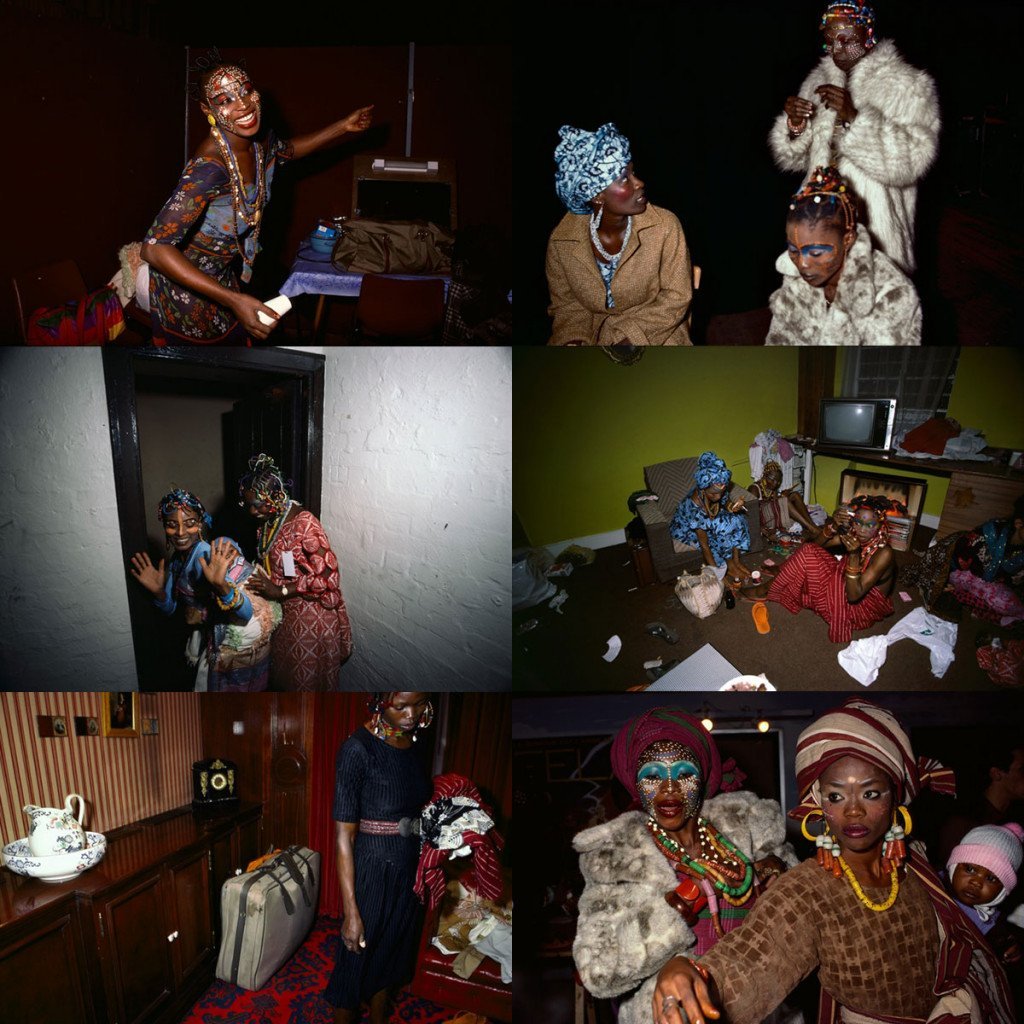
Fela Kuti's Queens. Φωτ. Bernard Matussiere.
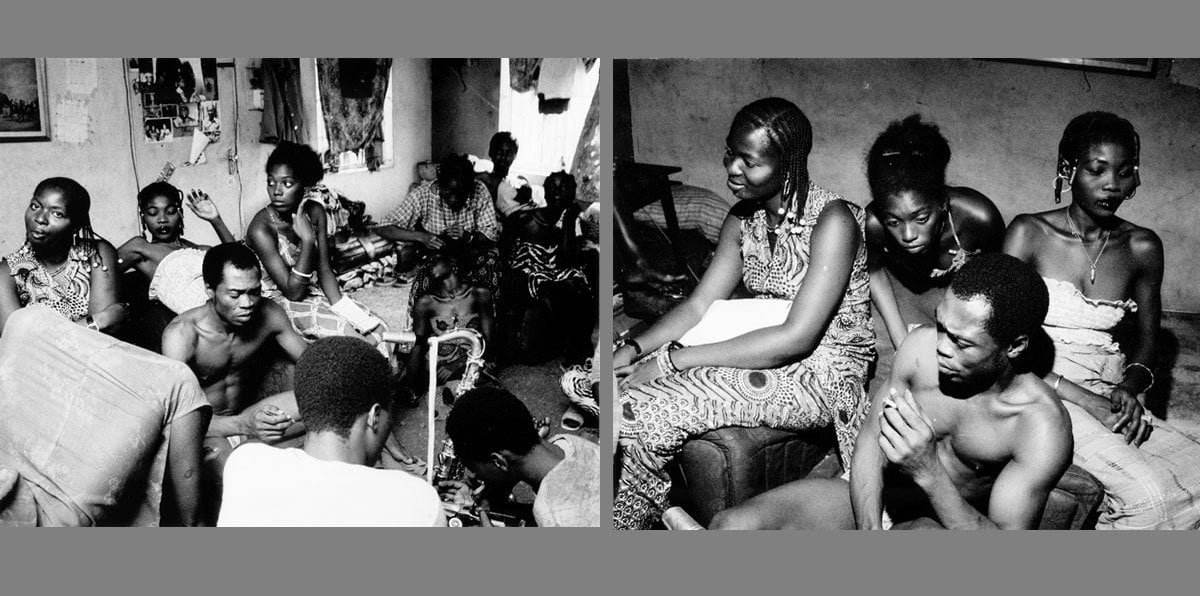
Φωτ. Janet Griffith.
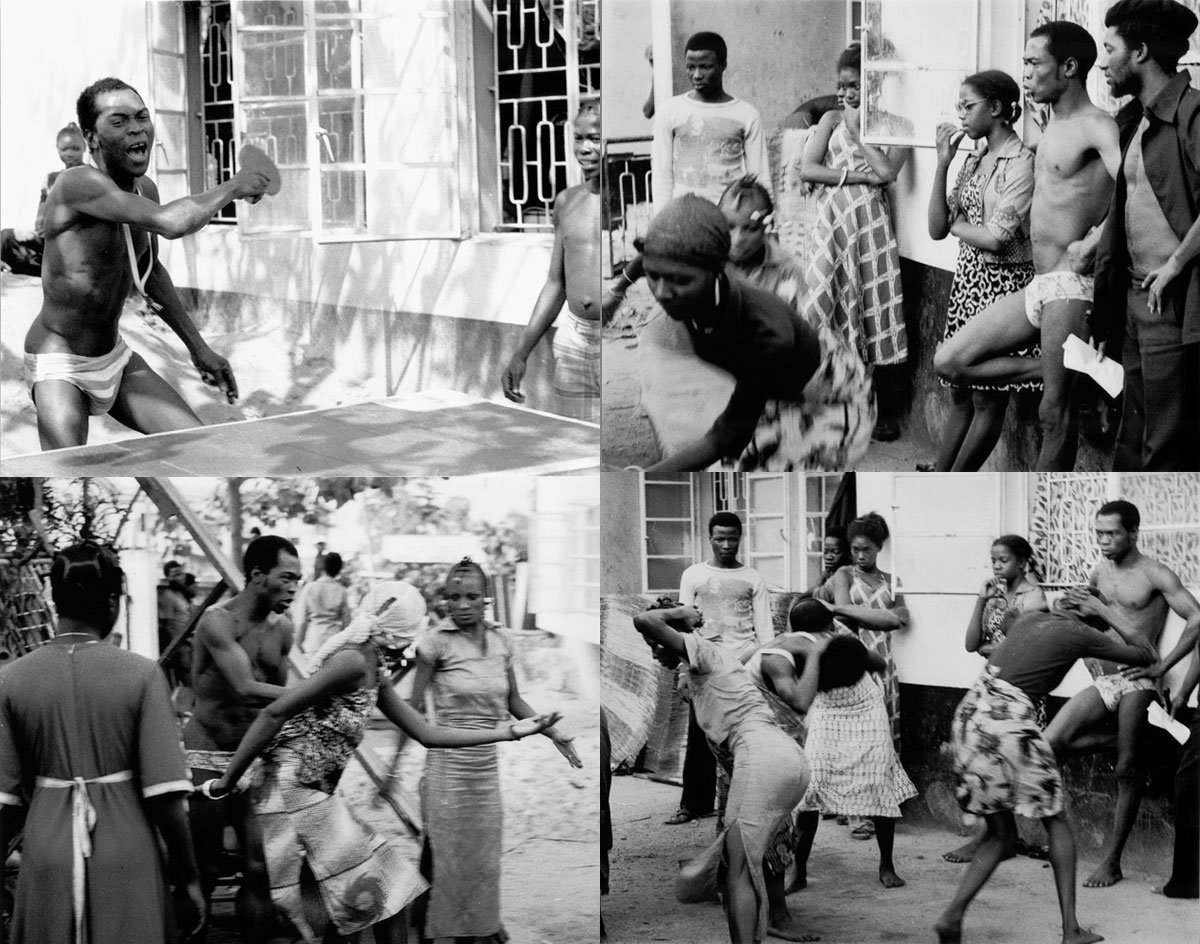
Πρόβα χορού. Φωτ. Janet Griffith.
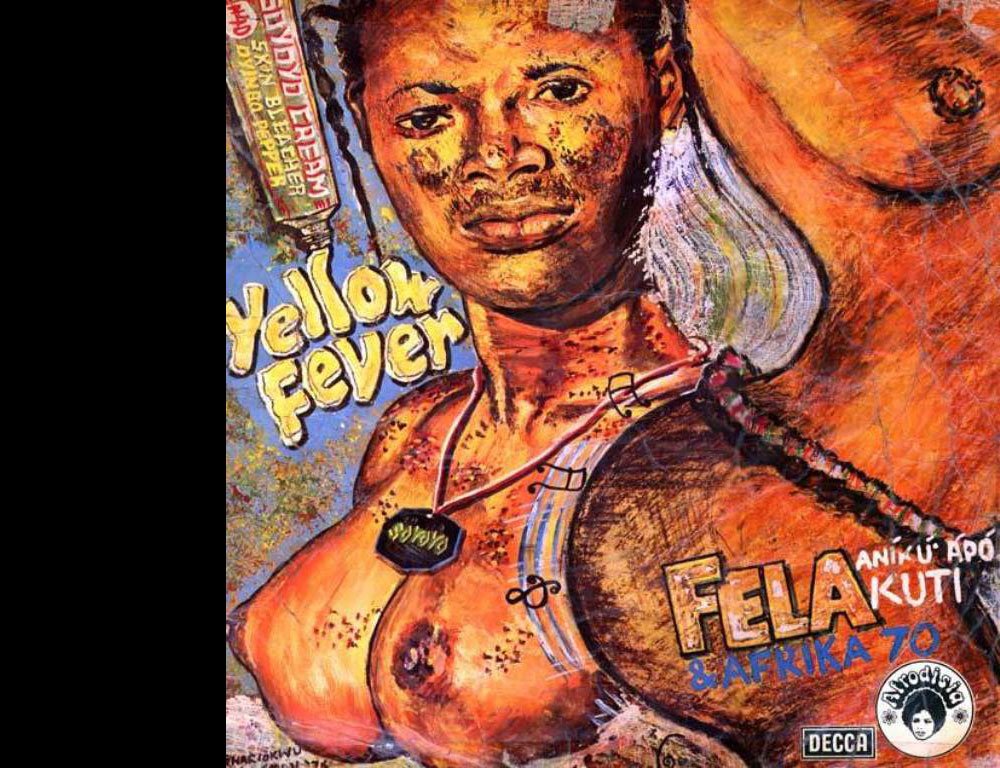

Fela Kuti's Queens από τον φωτογράφο James Petrozello.


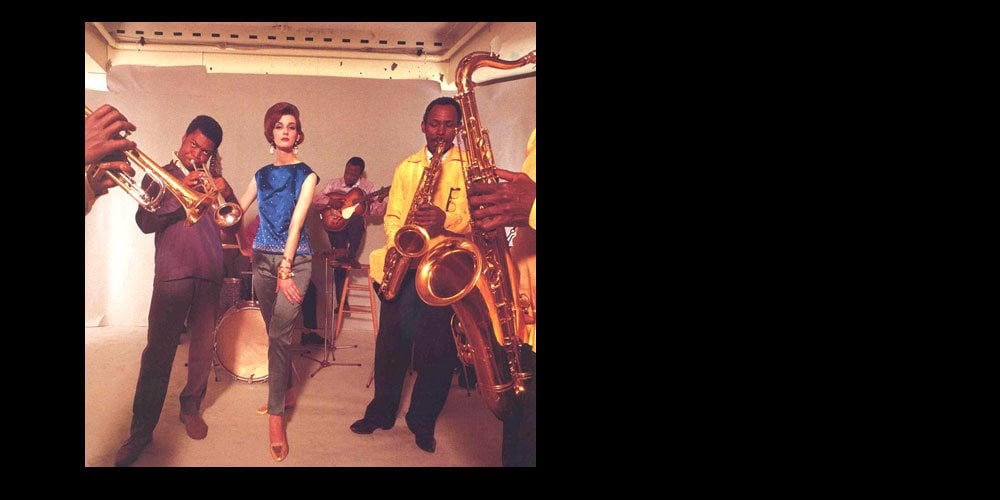
Μία αδημοσίευτη λήψη του Brian Duffy για το θέμα της Vogue Evening Looks and All That Jazz' (1961) που ανακάλυψε ο Michael E. Veal. Η λεζάντα της φωτογραφίας αναφέρει ότι σ' αυτήν τη λονδρέζικη έκδοση του συγκροτήματος "Koola Lobitos" (The Cool Cats), ο Fela ήταν με την τρομπέτα και ο J. K. Braimah με την κιθάρα. Την επιμέλεια των ρούχων είχε κάνει ο sir Hardy Amies, αμπιγιέρ της Βασίλισσας.

Η Beyonce ως Fela Kuti's Queen για τα 90 χρόνια του γαλλικού περιοδικού μόδας L'Officiel.
Femi Kuti (γιος του Fela και συνεχιστής του). Live at the Shrine.
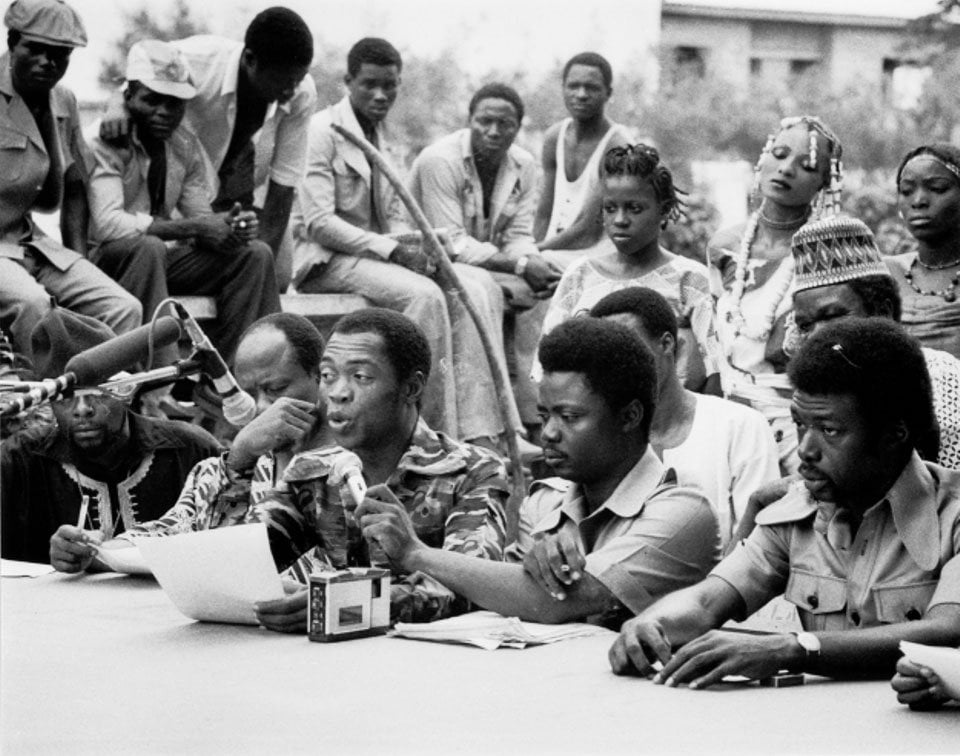
Ο Fela Kuti απευθύνεται στο λαό της Νιγηρίας.

Zombie, 1977. 27ος δίσκος του Fela Kuti με τεράστια επιτυχία στη χώρα του. Σε αντίποινα για τις συνεχείς πολιτικές καταγγελίες του Fela Kuti ενάντια στο στρατοκρατικό καθεστώς της Νιγηρίας, πραγματοποιήθηκε έφοδος το Φεβρουάριο του 1977 με εκατό στρατιώτες στην κοινότητα της Kalakuta Republik, όπου έμενε ο μουσικός με την οικεγενειά του και φίλους-οπαδούς. Ο ίδιος ο Fela Kuti τραυματίστηκε σοβαρά, ενώ η μητέρα του σκοτώθηκε όταν την έριξαν από το παράθυρο. Σαν απάντηση, θα γράψει δύο τραγούδια, το "Unknown Soldier" και το "Coffin for Head of State" που αναφέρεται στην αποφασή του να αφήσει το φέρετρο της μητέρας του έξω από το στρατώνα όπου έμενε ο αξιωματικός που είχε διατάξει την επίθεση. Η επόμενη ενεργειά του ήταν να παντρευτεί επίσημα 27 γυναίκες, όλες τραγουδίστριες η χορευτριές του, επείδη, όπως είπε, η ολική καταστροφή του στουντιό του τις είχε αφήσει χωρίς δουλειά.
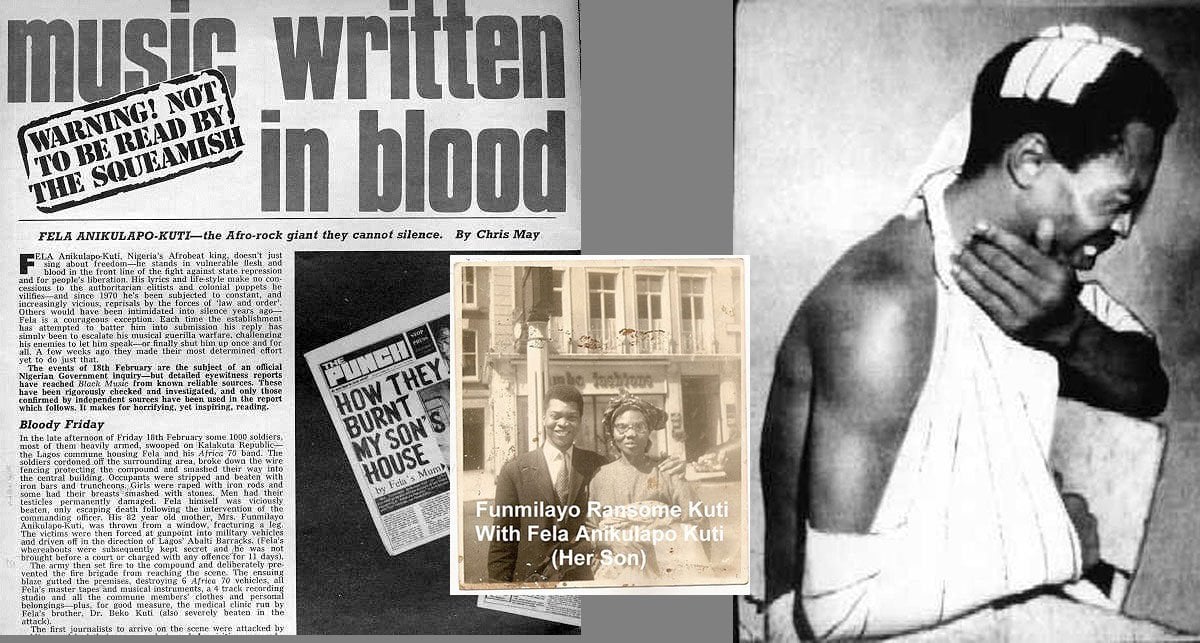
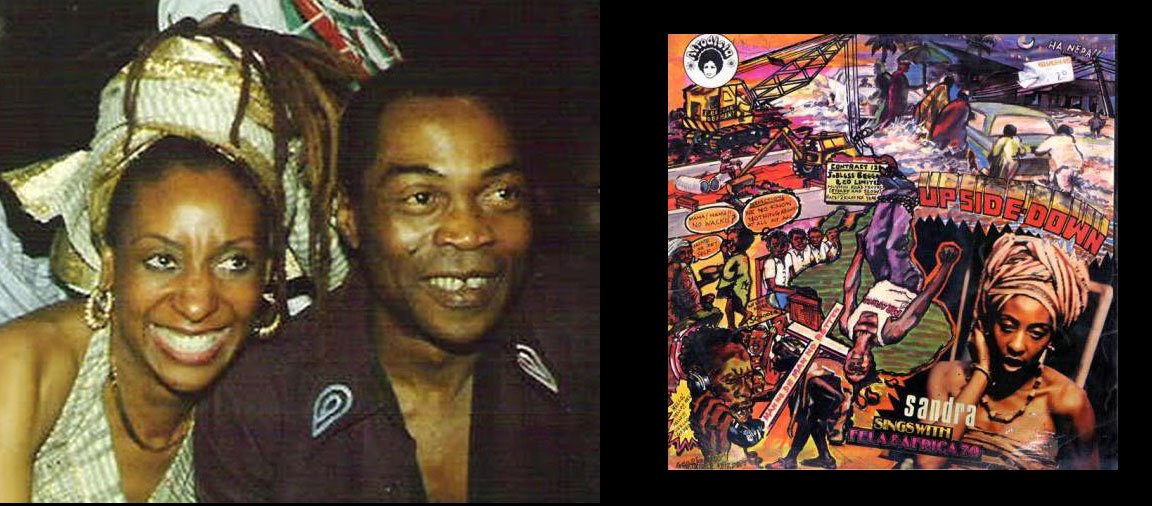
"Ο Fela πήγε με τη μπάντα του στο Los Angeles το 1969, και έφυγε από εκεί το 1970 έτοιμος για επανάσταση. Μουσικός και ακτιβίστρια, η Sandra Smith (τώρα Izsadore) τα είδε όλα από πρώτο χέρι. Ήταν ο μέντορας του Fela, ο δάσκαλος και η αγαπημένη του όσο έμεινε στην Πόλη των Αγγέλων. "Η Sandra με δίδαξεαυτά που ήθελα να μάθω" δήλωσε ο Fela στον συγγραφέα Micheal Veal. "Ήταν εκείνη που μου άνοιξε τα μάτια. Για πρώτη φορά άκουσα πράγματα που δεν είχα ακούσει ποτέ πριν για την Αφρική! Η Santra ήταν ο σύμβουλος μου. Μου μίλησε για την πολιτική, την ιστορία. Μου έμαθε όσα ήξερε κι αυτά ήταν ήξερε ήταν αρκετά για μένα για να κάνω ένα ξεκίνημα". (Afrobeatdiaries)
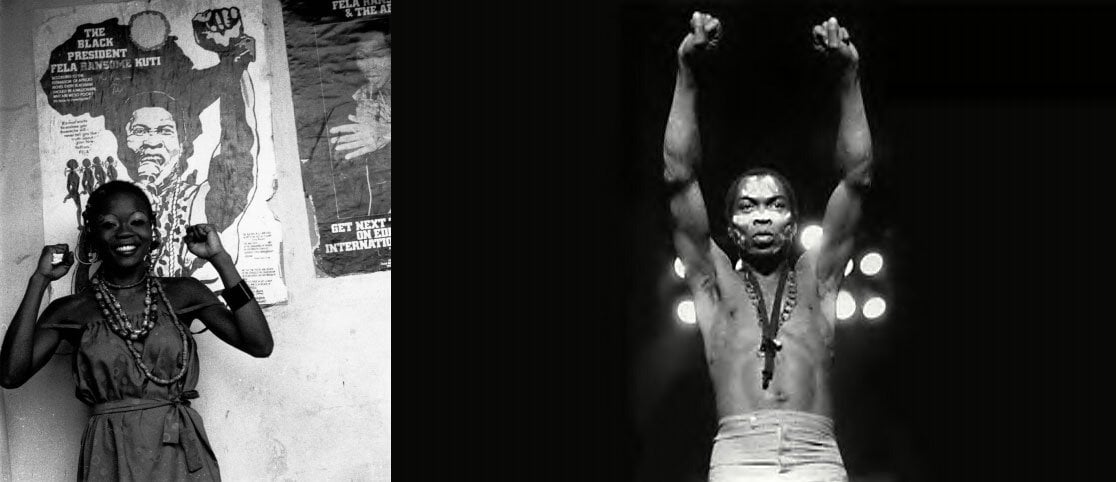
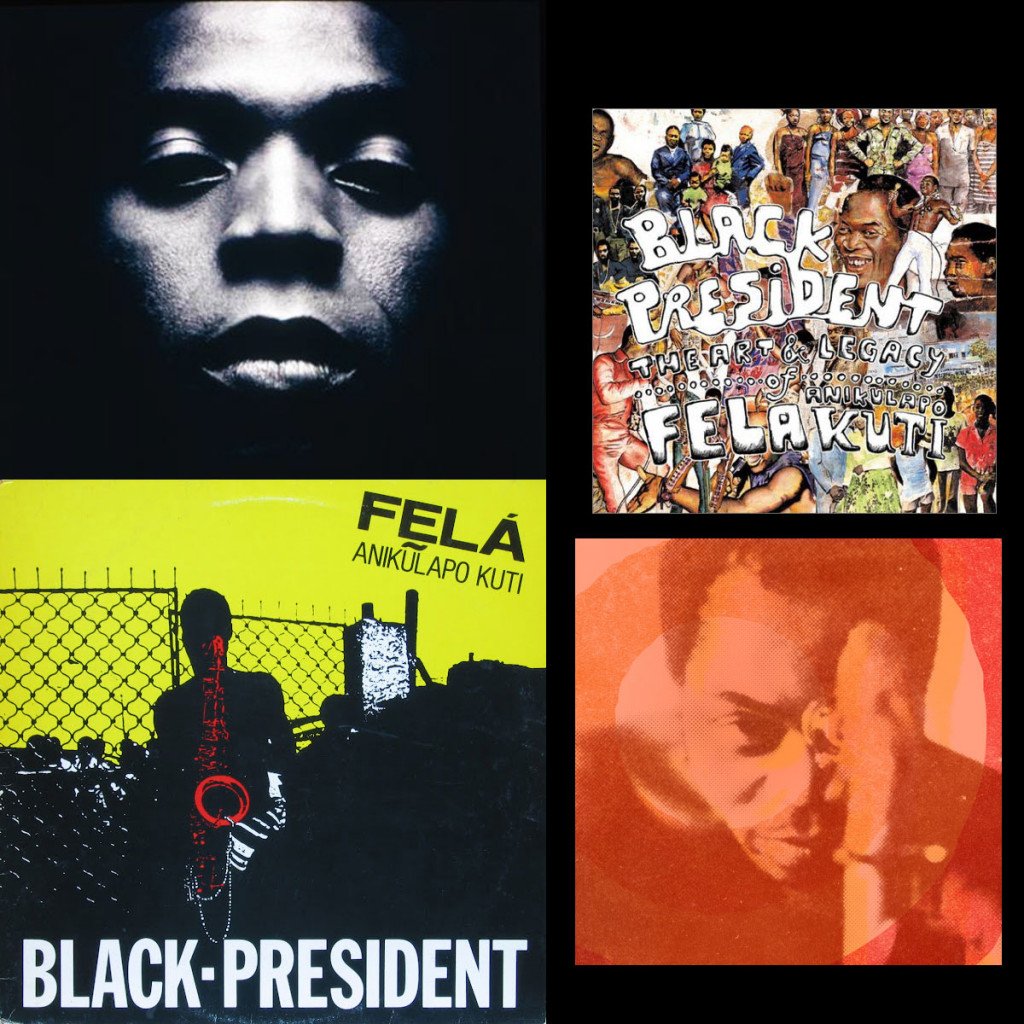
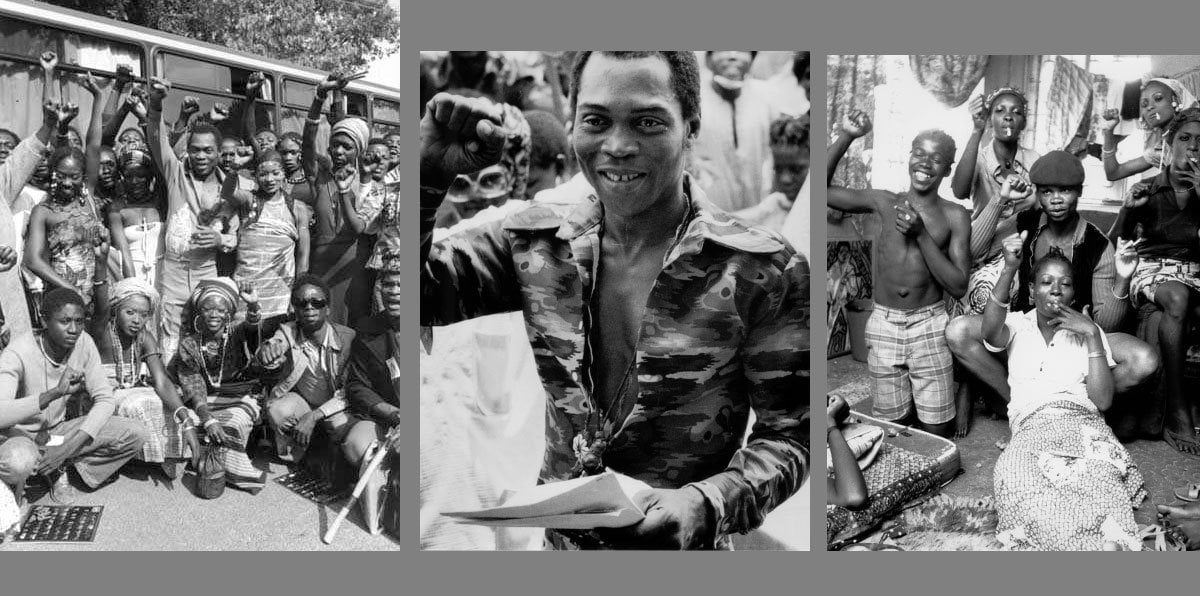
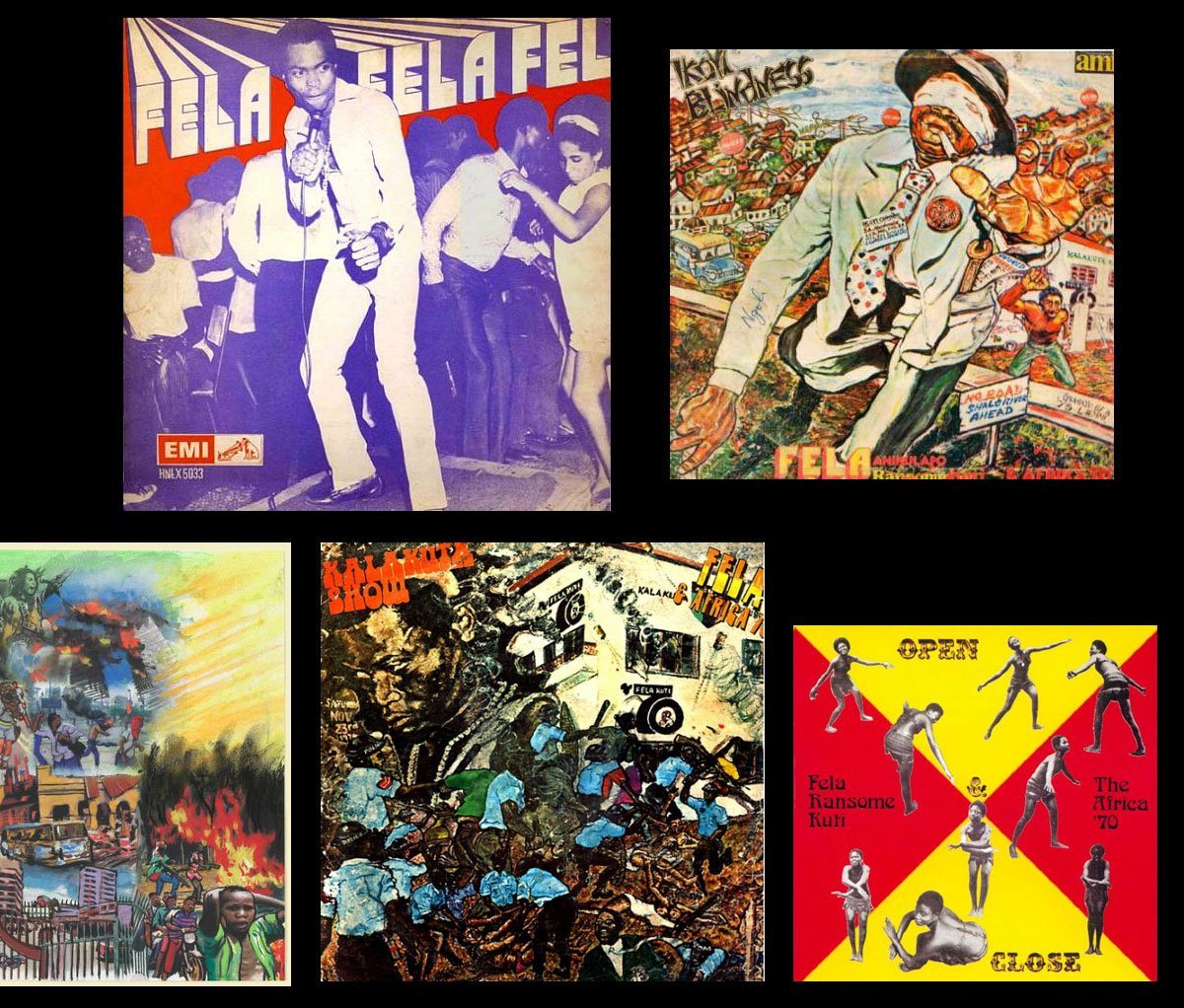
Η κηδεία του Fela Kuti. 'Ενα εκατομμύριο κόσμος τον συνόδευσε με πολλή μουσική.
"A leaden cloud crept over Africa on August 2nd, 1997. Tears flowed from eyes in Nigeria, in Africa, and all over the world. Hearts became heavier. Many wished it hadn't happened. Some accepted it as part of a divine order. Anyone who was conscious of it at all recognized it as the end of an era. The battle hardened and seemingly invincible African music legend Fela Anikulapo Kuti was dead at 58 from heart failure related to AIDS.
To the Pan-African world, Fela was a towering figure who arguably combined elements of pure artistry, political perseverance, and a mystic, spiritual consciousness in a way that no other individual ever has. Musically, he achieved a level comparable to Miles Davis, James Brown, Thelonius Monk, and Bob Marley. At times, he was a Peter Tosh or a Sun Ra, yet more. Politically, he subscribed to the point of view of Marcus Garvey, Kwame Nkrumah, Malcolm X, and Kwame Ture. Spiritually, less is known about Fela, except that his spiritual vision grew from the African tradition and his belief in the sublime power of musicians.
"The world should mourn," said engineer/producer Dennis Bovell, who recorded eight albums worth of material for Fela in the mid-80s. "The world should mourn, especially the African world, because one of its outspoken has spoken. I hope another one comes along straight-away to fill the gap. Otherwise everything's going to be hush-hush and swept under the carpet, and a lotta injustice is gonna occur."
"We didn't expect it," said Nigerian reggae/afropop star Sonny Okosuns, shortly after hearing of Fela's death. "We've been very great friends since 1969 when he came back from America. We [musicians] studied him seriously. He's been a very strong force to reckon with, and he will continue to be a strong force to reckon with. He will be remembered. We hope that he will rise again."
Fela Ransome Kuti was born on October 15, 1938 and raised by a colonial Christian family of means in the town of Abeokuta, Nigeria. "My father was very strict," he told journalist Roger Steffens in 1986. "I thought he was wicked. He kicked my ass so many times. It was tough in school under our father. That's how he understood life should be, cause he read the Bible: 'Spare the rod and spoil the child.' My mother, she was wicked too. She kicked my ass so much man -- systematic ass kicking. [But] on the whole, they were beautiful parents, they taught me heavy things. They made me see life in perspective. I think if they had not brought me up with these experiences, I do not think I would have been what I am today. So the upbringing was not negative."
Fela left Nigeria and studied music at Trinity College in London from 1958 to 1962. In 1960, Nigeria gained its independence from England in no small part due to the activism of people like his mother, Funmilayo -- a central figure in his Fela's life. Fela married his first wife, Remi, in London in 1961. While Fela studied classical music at Trinity, outside school he studied and played jazz. The first recordings of his band Koola Lobitos are rumored to date from this period. His first verifiable recording was "Aigna" as Fela Ransome Kuti and His Highlife Rakers from around 1961. He also recorded several titles under the name Highlife Jazz Band in the mid to late 60s, and there was a full Koola Lobitos album released by EMI in Nigeria in 1969.
Fela's journey to Los Angeles in 1969 was the most formative experience of his life. In L.A., he met a young Africentric woman named Sandra Smith, who exposed him to the consciousness then sweeping Black America. She gave Fela a copy of Alex Haley's Autobiography of Malcolm X and unknowingly sent him on his way.
"It was incredible how my head was turned," he told the New York Times in 1987. "Everything fell into place. For the first time, I saw the essence of blackism. It's crazy; in the States people think the black power movement drew inspiration from Africa. All these Americans come over here looking for awareness, they don't realize they're the ones who've got it over there. We were even ashamed to go around in national dress until we saw pictures of blacks wearing dashikis on 125th street."
"I wasn't aware I was sending him," says a proudly reflective Sandra (Smith) Isadore. "I was being myself and so happy that I had met an urban African. I was trying to get to my roots in 1969. In my own mind, they (Africans) didn't have a struggle. It came to me as a surprise when I was in Nigeria [in 76] and Fela gave me this credit, cause I had not given the credit to myself."
In L.A., H.B. Barnham recorded the high-life jazz sound of Fela Ransome Kuti and the newly renamed 'Nigeria 70.' Those recordings, recently released by Stern's Africa on CD, are the earliest document of Fela's work currently in print. In 1970, EMI financed a session in London at Abbey Road studio, which became Fela's London Scene. In London, Fela was befriended by percussionist Ginger Baker. Fela appeared on Baker's Stratavarious album and played live shows with the former Cream drummer, one of which was released as Live With Ginger Baker. Later, Baker would produce Fela's classic, He Miss Road. By 1971, Fela's musical career was focused and directed, and it exploded in terms of quantity and quality of output. It was the beginning of his own style of music -- Afrobeat. "Ολόκληρο το άρθρο στα Afrobeatdiaries.




















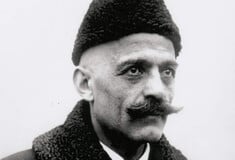

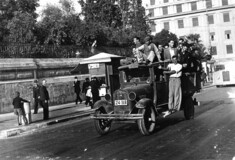


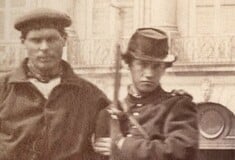
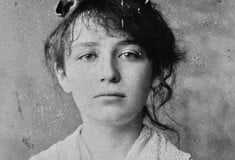


σχόλια